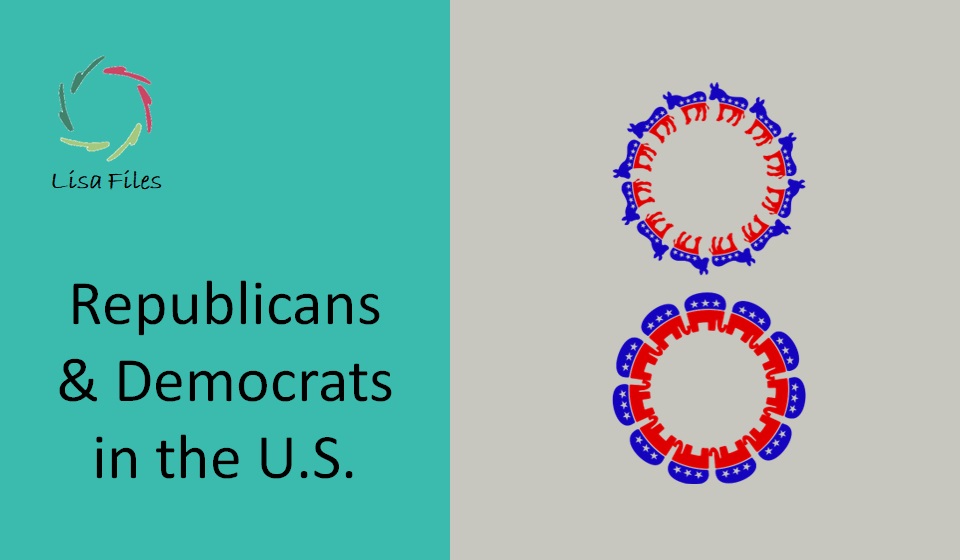Democrats and Republicans in the U.S.

This is the introduction to a Lisa File (54 p.). If you want the whole file, please contact lisa@aurelis.org, stating who you are and why you want the file. For more about the Lisa Files, click here.
A balanced understanding
This document offers a detailed examination of the contrasting ideologies and policy stances of the United States’ two primary political forces—the Democratic and Republican parties.
The goal is to provide a balanced understanding of the historical evolution, core principles, and major political agendas that have come to define each party. This analysis not only highlights the foundational differences but also considers the significant divide that has grown between them, exploring its implications for American society and governance.
About
Starting with an exploration of each party’s origins, the document traces how Democrats and Republicans have developed their distinct identities over decades. It scrutinizes key issues such as economic strategies, social justice, healthcare, and foreign policy, illustrating the ideological underpinnings that drive differing viewpoints on these pivotal topics.
The analysis is designed to respect the complexity within each party while clarifying the broader philosophies that drive their agendas.
Polarization, cooperation
Furthermore, this introduction acknowledges the deepening polarization between the two parties, which has significant ramifications for national unity and democratic function.
In light of this divide, the latter sections of the document will propose strategies aimed at fostering dialogue and understanding between the two sides. These strategies emphasize bipartisan cooperation and seek to identify common ground that can help bridge ideological divides, thereby strengthening the fabric of American democracy.
Promoting a more inclusive political discourse
By providing a thorough understanding of these dynamics, “The Lisa-Files: Democrats-Republicans” invites readers to reflect on the evolving landscape of American politics and consider how informed engagement and empathy might heal divisions and promote a more inclusive political discourse.


